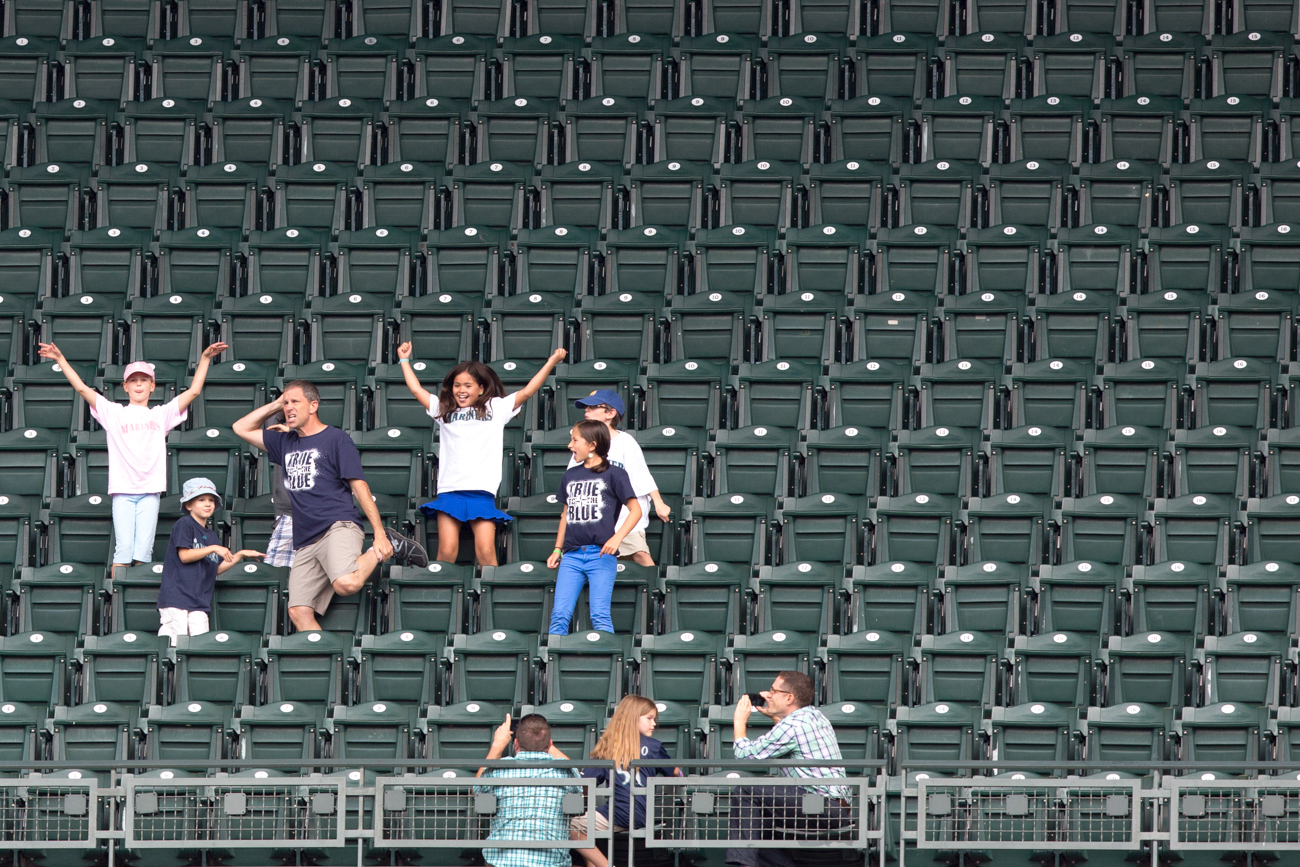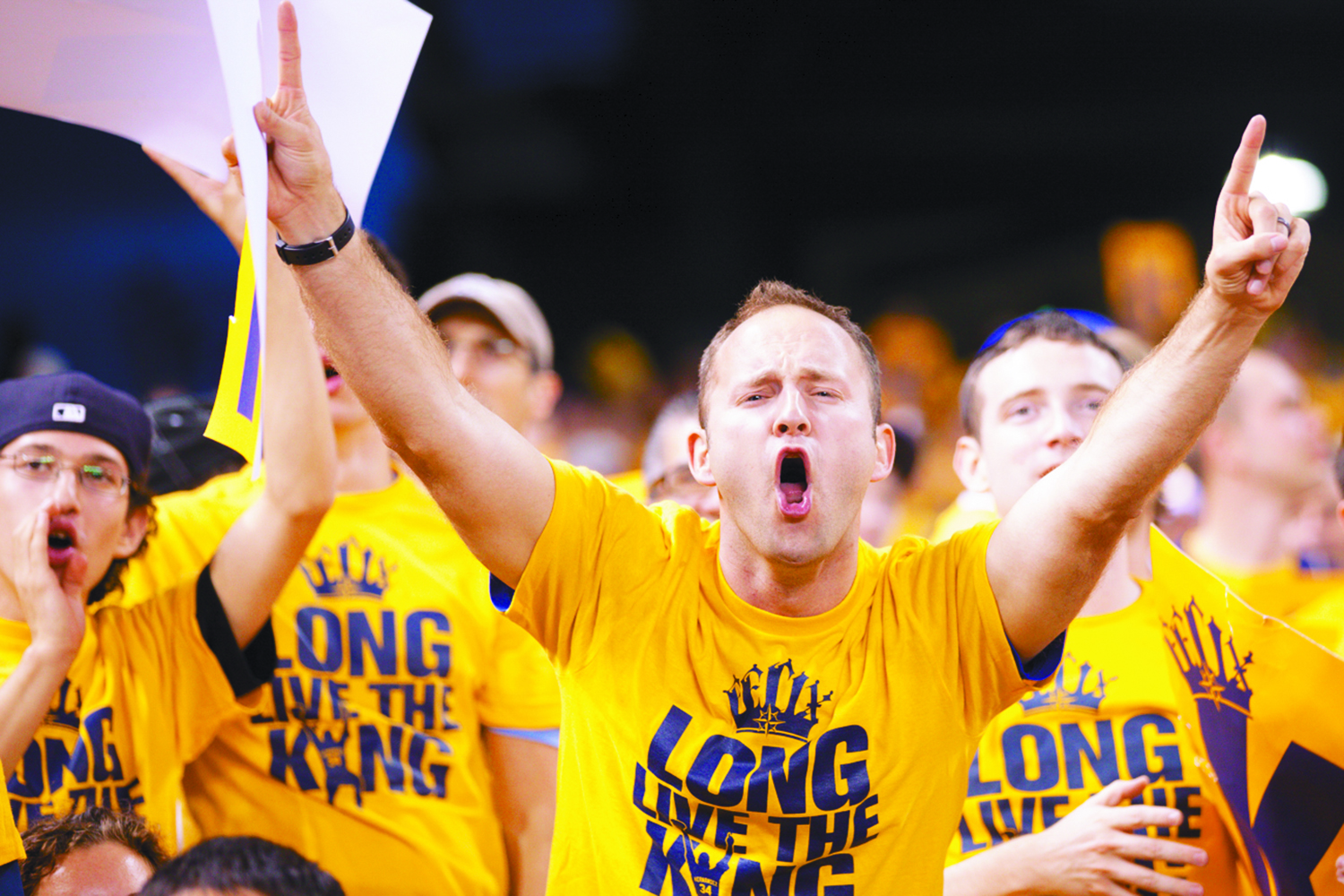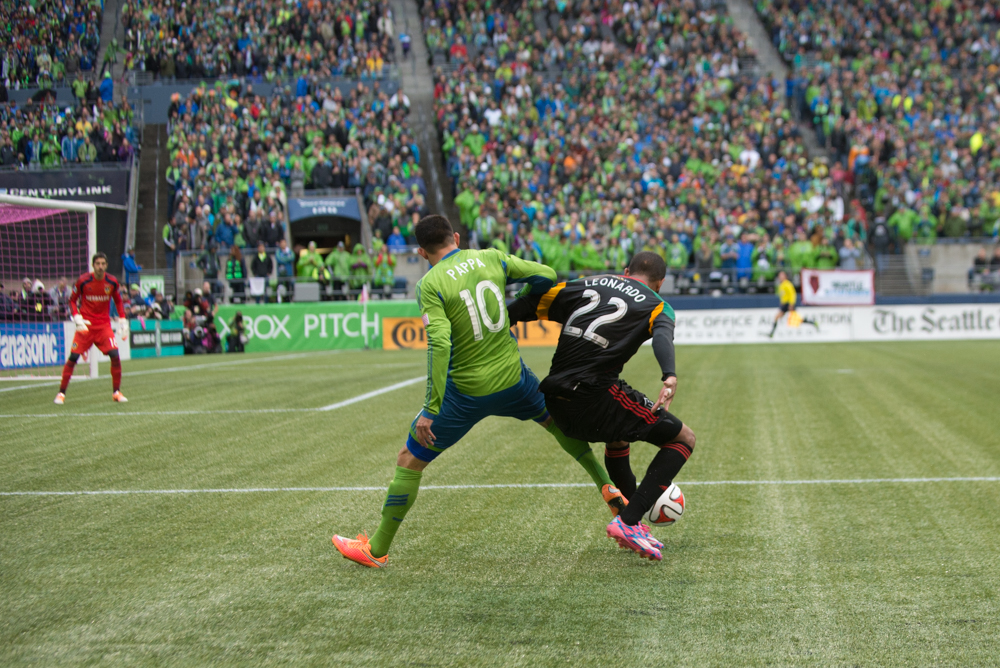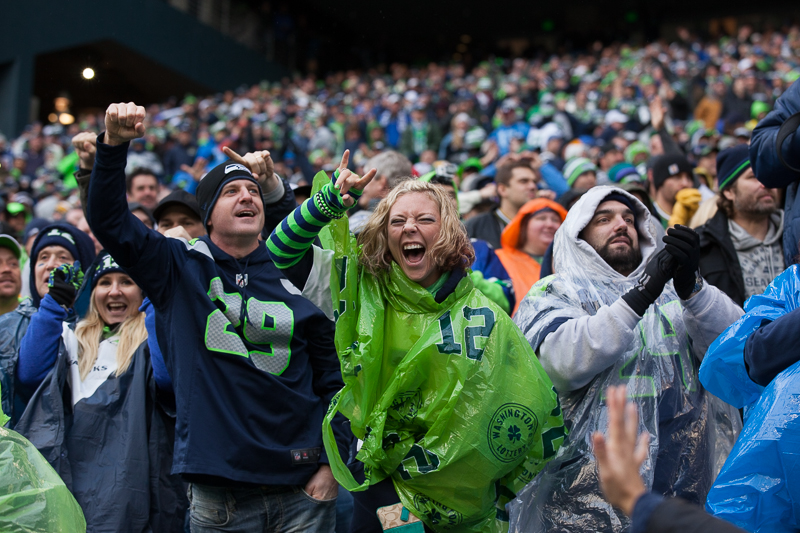While the Seahawks have been amazingly good at home, the Mariners have been bafflingly bad. Sunday’s crushing loss to Oakland—which left the team one game out of the final wild-card spot—dropped the M’s to 38-40 at Safeco Field this year. Of the 16 MLB teams with an overall winning record, the M’s are the only one with a losing record at home. What gives?
The easy answer is to say that the Seahawks have such a big advantage because they have such big crowds, and the Mariners don’t have an advantage because they don’t. And you know what? That may be exactly right.
According to the recent book Scorecasting: The Hidden Influences Behind How Sports are Played and Games are Won, the natural home-field advantage seen in every sports league worldwide exists because of officiating bias brought on by crowd noise. One example of the many studies the authors cite: Researchers asked two groups of soccer referees to look at video of tackles and determine whether the tackles should’ve been called fouls. One group watched the video with the crowd noise muted, the other group saw the same tackles with crowd noise. The refs who could hear the crowd noise called fewer fouls against the home team, and more against the visitors.
The psychological term for this is “social influence.” In the same way that you’re more likely to think a joke is funny if lots of people laugh at it (the thinking behind sitcom laugh tracks), a referee can’t turn off the subliminal bias that causes him to be more likely to think a play is a foul if thousands of people are screaming at him that it is.
Studies show that home-field advantage dissipates the smaller the crowd gets, and even the further away it gets! In Germany, soccer teams that played on fields surrounded by running tracks got half as many calls in their favor as teams who played at stadiums where the stands were closer to the field—a result that bodes well for UW football in their second year at newly trackless Husky Stadium.
Back to the M’s. Research on ball-and-strike calls in baseball indicated that the effect of umpire bias was worth about seven runs over the course of the year to a home team. Because the Mariners didn’t have the benefit of loud crowds all season, they didn’t get those seven runs. It’s not much, but definitely enough to swing the result of a game the Mariners might end up having needed to sneak into the wild-card game.
I hold myself personally responsible for only getting to about 15 games this year and spending most of them out in the ’Pen, about 200 yards from the nearest official. If the Mariners are still in the race when they get back home September 26, I’ll plop myself in Field Level for the final three games and try to get those seven runs back. For your sake, I hope you’re not sitting in front of me.
sportsball@seattleweekly.com








